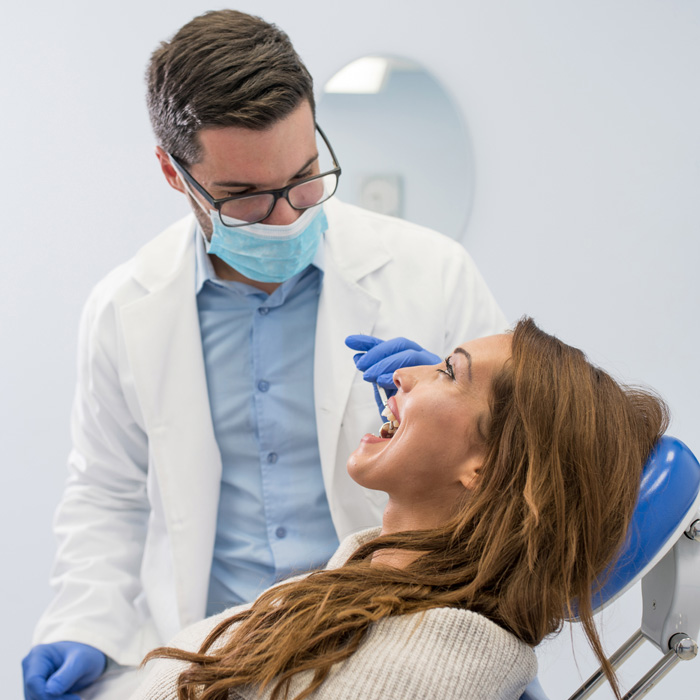What Is IV Sedation Dentistry?
IV sedation dentistry works as a form of conscious sedation to help you feel relaxed during your appointment. This method does not put you fully to sleep, but it does make you less aware of your surroundings — including anything the dentist may or may not be doing to your mouth. That means you can still respond to verbal commands or gentle nudging, and you should not need help breathing. Unlike other forms of sedation that are inhaled (like nitrous oxide) or taken in pill form, the dentist administers the sedation intravenously, which means through your vein.
IV sedation provides several benefits:
- It starts working quickly, and you feel minimal to no pain during the procedure.
- The dentist can monitor your vitals and easily adjust the dosage.
- It creates a long period of amnesia, so you won’t remember the procedure at all when you wake up.
- It allows you to cooperate for a more extended period, so your dentist can perform multiple procedures with only one appointment.
How to Prepare for IV Sedation
Because you will forfeit some of your mental faculties, you will need to prepare more for IV sedation than you do for a typical dental appointment. Here’s what you can expect before, during, and after your IV sedation:
Before
Your dentist will provide explicit instructions before your appointment. Usually, these involve recommendations to wear comfortable clothing, avoid eating or drinking 6-8 hours before sedation and stop taking certain medications (unless previously approved). You will need to provide a complete medical history and alert your dentist to any changes beforehand. Also, line up a driver to take you to the appointment and pick you up.
During
Once you make it to the dental chair, a dental professional will start an IV in your hand or arm. If you need any other medications — such as pain medicine, anti-inflammatories, or steroids — you will usually receive these through your IV, too. The dentist will monitor your pulse, breathing, and blood pressure throughout the procedure to watch for any adverse reactions. You should immediately feel relaxed and unaware of any sights, smells, or sounds.
After
After the procedure, you might feel slightly drowsy for several hours. Your driver will collect any post-procedure instructions from the dentist and take you home. You will need to clear your calendar for the next 24 hours and avoid strenuous activity, unapproved medications, alcohol, operating heavy machinery, or making major life decisions. Complications with sedation are rare but contact the dentist immediately if you suspect any problems.
Are You a Good Candidate for IV Sedation?
Before we can schedule you for IV sedation, you will undergo a health evaluation, including a review of your medical history and medication use. Patients who are older or have significant medical considerations might first require a consultation with their primary care physician or medical specialist. Typically, good candidates for IV sedation include:
- Those with moderate to high dental anxiety
- Those who need more painful dental work
- Those with a strong gag reflex
- Those who need longer or multiple procedures
Ultimately, your dentist knows best if IV sedation is right for you. However, the ability to offer IV sedation requires extra training, so check with your dental office to see what’s available. If dental anxiety prevents you from receiving the treatment you need, know your options for relaxing and comfortable oral care.

